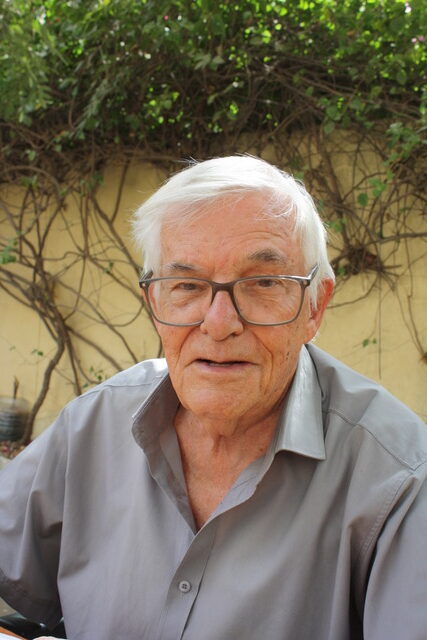
Jan de Bosch Kemper, initiator and founder of the Kemper Foundation, was born in 1941 in Amsterdam. As a young architectural graduate, he left for Dar es Salaam for a short holiday in 1965. He would remain in Africa for the rest of his life, captivated by a continent with on the one hand its enormous problems of poverty and inequality and on the other hand, inextricably linked to it, gigantic potential and virtually unlimited space. to work on those problems.
In 1969 Jan started his career as an architect-planner at UNESCO. First in Khartoum at a Regional Office for School Construction, then in Cameroon and Rwanda for National Programs and from 1978 in Dakar at the UNESCO Regional Office for Education in Africa. From Dakar he made business trips to almost all UNESCO member states in sub-Saharan Africa until his retirement in 2001. In the UNESCO Regional Office in Dakar, Jan became head of its “Educational Planning and Facilities” department, which was also tasked with coordinating the realization of operational UNESCO projects financed by third parties (World Bank, bilateral sources, etc.).
After the international World Conference on Education in 1990, where member states of the United Nations pledged to achieve access to “education for all”, Jan launched a project for UNESCO Clubs in Senegal (the Literacy Caravan) with the realization of the so-called “Learning Hostels” (see drawing above). This project was included in the then “UNESCO Co-action” program. To promote this action in other countries, he was appointed “adviser” by the World Federation of UNESCO Clubs after his retirement.
In 1993, Jan founded the Kemper Foundation to continue his efforts in Africa based on experience gained. He centrally states that national education must be supplemented with knowledge and skills that are of local importance. Here “learning hostels” play a role in which local culture finds its place. The KS also focuses on promoting education and the integration of deaf people into society. This program was launched by Jan in 2003 in solidarity with the completely deaf, as he himself became one-sided deaf as a baby in 1941.
To succeed, projects in KS programs must connect with local initiatives where they take root and are implemented by those directly involved.
